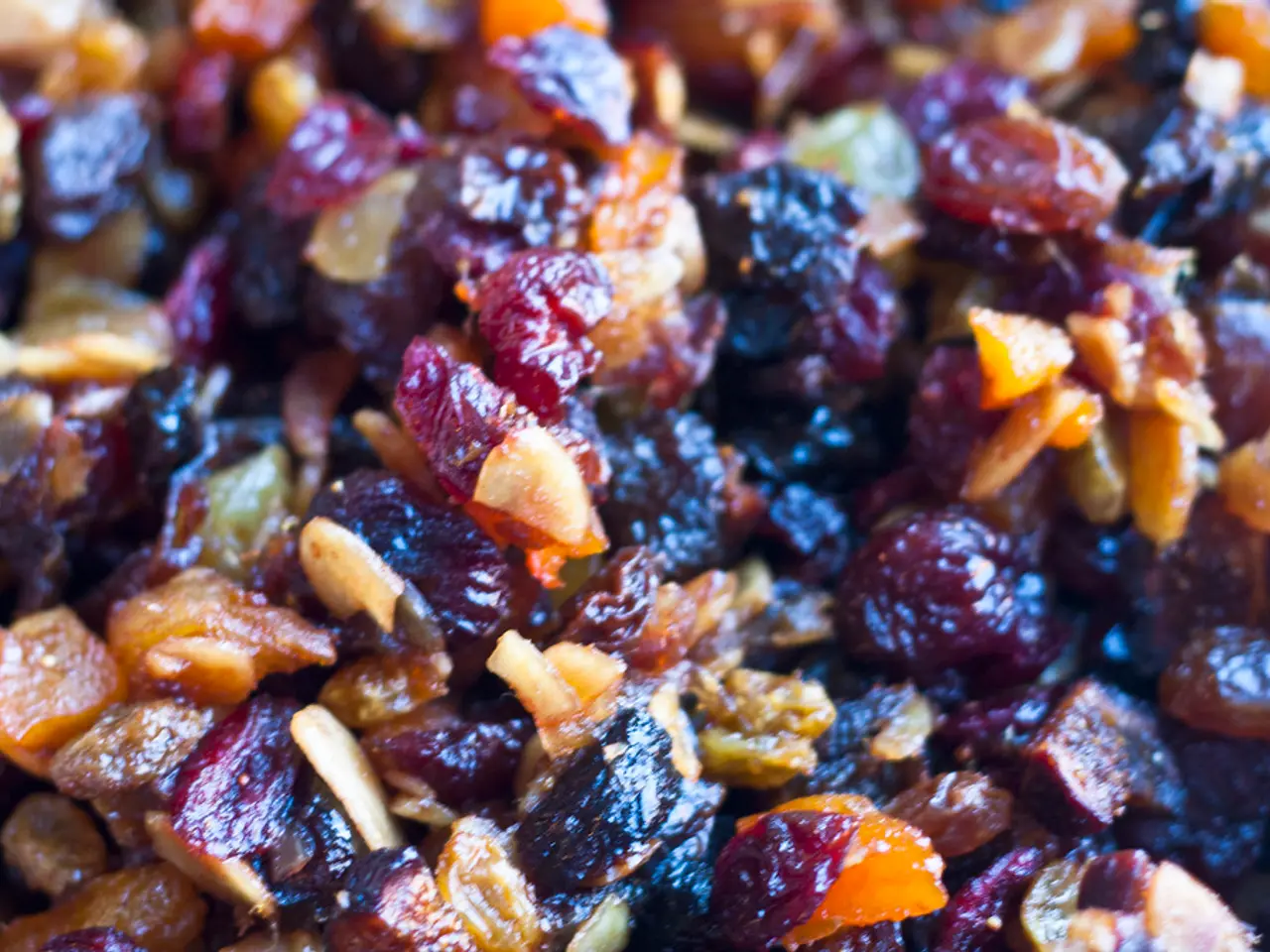Understanding inflammation-promoting foods and their impacts
In a world where convenience and taste often take centre stage in our diets, it's essential to understand the impact certain foods can have on our health. Here, we delve into the connection between food and inflammation, and how some common dietary choices may contribute to chronic inflammation and associated diseases.
Firstly, excessive consumption of sugar, particularly refined sugars, is a significant culprit. Consuming 50 grams or more of sugar in one sitting can raise inflammatory markers. Diets high in refined sugars, common in baked goods, sodas, and candy, promote insulin resistance and weight gain, both of which increase inflammation.
Trans fats, found in baked goods and fried foods, are another dietary offender. They are known to trigger inflammation. Refined carbohydrates, such as white bread, pasta, and pastries, are linked to increased cardiovascular risk by promoting inflammation.
Red meats, rich in saturated fats, also play a role. Fatty red meats, like beef ribeye, pork belly, and steak, may activate inflammatory genes and increase inflammatory markers such as C-reactive protein (CRP). Processed meats, such as sausage, bacon, salami, and hot dogs, are rich in saturated fats, sodium, and advanced glycation end products (AGEs), all of which contribute to inflammation and disrupt gut health.
These foods stimulate the immune system to produce inflammatory cytokines and markers, exacerbating chronic inflammation linked to diseases like type 2 diabetes and cardiovascular conditions.
However, not all news is grim. Certain dietary choices can help reduce inflammation in the body. The DASH diet, which limits the intake of saturated fats and trans fats, sugary drinks and sweets, and salt, and focuses on the consumption of vegetables, fruits, whole grains, fat-free or low-fat dairy products, poultry, fish, beans and nuts, vegetable oils, may help reduce inflammation.
The Mediterranean diet, which includes high intake of plant foods, moderate intake of fish, seafood, yogurt, cheese, and milk, low intake of red and processed meat, low intake of foods high in sugar, may have a strong anti-inflammatory effect. Certain oily fish contain omega-3 fatty acids, which may help reduce the body's levels of inflammatory proteins. Fruits and vegetables high in antioxidants and polyphenols may have anti-inflammatory effects.
Increasing dietary fiber may help lower certain inflammatory cytokines, and certain foods, like certain oily fish, fruits, and vegetables, may help reduce the body's levels of inflammatory proteins.
In conclusion, understanding the impact of food on inflammation is a crucial step towards maintaining a healthy lifestyle. By making informed dietary choices, we can help reduce the risk of chronic inflammation and associated diseases.
[1] A. Singh et al., "Diet, inflammation, and chronic disease," Nature Reviews Immunology, vol. 14, no. 11, pp. 803–816, Nov. 2014. [2] M. M. Mozaffarian et al., "Trans fatty acids and cardiovascular disease," The New England Journal of Medicine, vol. 375, no. 16, pp. 1578–1588, Oct. 2016. [3] D. J. A. Jenkins et al., "Dietary approaches to prevent and treat chronic inflammation," The Lancet, vol. 377, no. 9767, pp. 1255–1265, Apr. 2011. [4] A. C. Hu et al., "Dietary fructose and cardiovascular disease," The American Journal of Clinical Nutrition, vol. 87, no. 3, pp. 670S–676S, Mar. 2008. [5] A. Schwarz et al., "Refined carbohydrates, advanced glycation end products, and cardiovascular risk," The Journal of Nutrition, vol. 135, no. 6, pp. 1191S–1196S, Jun. 2005.
- Excessive eating of sugar, particularly refined sugars, can raise inflammatory markers, promoting insulin resistance and weight gain, both of which increase inflammation.
- Certain medical-conditions, like type 2 diabetes and cardiovascular diseases, are linked to chronic inflammation stimulated by specific foods.
- Trans fats, commonly found in baked goods and fried foods, are known to trigger inflammation, aggravating these chronic diseases.
- Refined carbohydrates, such as white bread, pasta, and pastries, are linked to increased cardiovascular risk by promoting inflammation and exacerbating chronic diseases.
- Fatty red meats, like beef ribeye, pork belly, and steak, may activate inflammatory genes and increase inflammatory markers, affecting health-and-wellness.
- Processed meats, like sausage, bacon, salami, and hot dogs, are rich in saturated fats, sodium, and advanced glycation end products (AGEs), all of which contribute to inflammation and disrupt gut health.
- The DASH diet, which focuses on healthy food like vegetables, fruits, whole grains, and fat-free or low-fat dairy products, may help reduce inflammation and manage chronic diseases.
- The Mediterranean diet, which emphasizes plant-based foods, may have a strong anti-inflammatory effect, improving health-and-wellness and reducing the risk of chronic diseases.




